Audi Q2 vs Toyota Yaris - Differences and prices compared
Compare performance (300 HP vs 280 HP), boot space and price (24900 £ vs 21900 £ ) at a glance. Find out which car is the better choice for you – Audi Q2 or Toyota Yaris?
Costs and Efficiency:
Price and efficiency are often the first things buyers look at. Here it becomes clear which model has the long-term edge – whether at the pump, the plug, or in purchase price.
Toyota Yaris has a to a small extent advantage in terms of price – it starts at 21900 £ , while the Audi Q2 costs 24900 £ . That’s a price difference of around 3000 £.
Fuel consumption also shows a difference: Toyota Yaris manages with 3.80 L and is therefore distinct more efficient than the Audi Q2 with 4.80 L. The difference is about 1 L per 100 km.
Engine and Performance:
Power, torque and acceleration are the classic benchmarks for car enthusiasts – and here, some clear differences start to show.
When it comes to engine power, the Audi Q2 has a slight edge – offering 300 HP compared to 280 HP. That’s roughly 20 HP more horsepower.
In acceleration from 0 to 100 km/h, the Audi Q2 is somewhat quicker – completing the sprint in 4.90 s, while the Toyota Yaris takes 5.50 s. That’s about 0.60 s faster.
There’s also a difference in torque: Audi Q2 pulls slight stronger with 400 Nm compared to 390 Nm. That’s about 10 Nm difference.
Space and Everyday Use:
Beyond pure performance, interior space and usability matter most in daily life. This is where you see which car is more practical and versatile.
Both vehicles offer seating for 5 people.
In curb weight, Toyota Yaris is noticeable lighter – 1090 kg compared to 1330 kg. The difference is around 240 kg.
In terms of boot space, the Audi Q2 offers evident more room – 405 L compared to 286 L. That’s a difference of about 119 L.
When it comes to payload, Toyota Yaris barely noticeable takes the win – 525 kg compared to 510 kg. That’s a difference of about 15 kg.
Who wins the race in the data check?
The Toyota Yaris holds a very small edge in the objective data comparison.
This result only shows which model scores more points on paper – not which of the two cars feels right for you.
Costs and Consumption
View detailed analysis
Engine and Performance
View detailed analysis
Dimensions and Body
View detailed analysis

Toyota Yaris
Audi Q2
The Audi Q2 packs Audi’s premium attitude into a compact, cheeky package that turns city streets into a runway for tasteful design and clever practicality. It’s an easy car to live with thanks to an upscale cabin, composed manners and sprightly handling, and while it won’t satisfy someone chasing sports-car thrills, it’s a smart, stylish pick for buyers who want substance with a wink.
details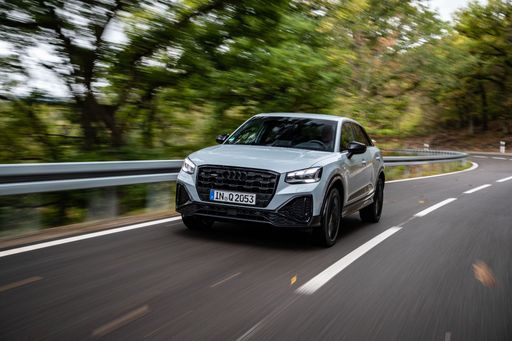
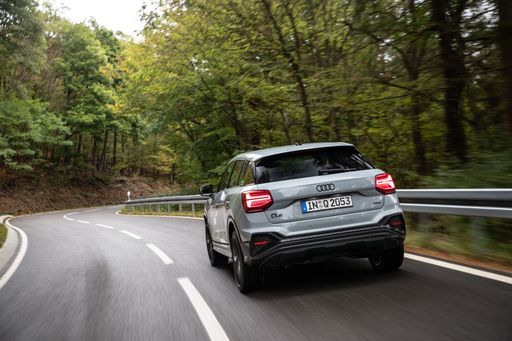
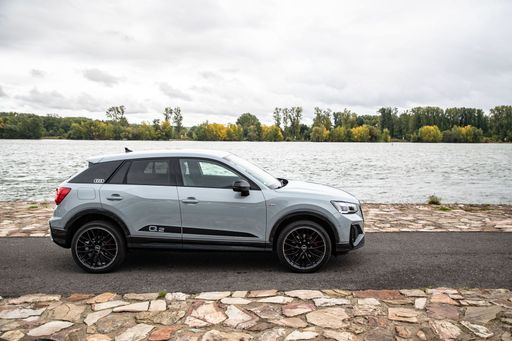
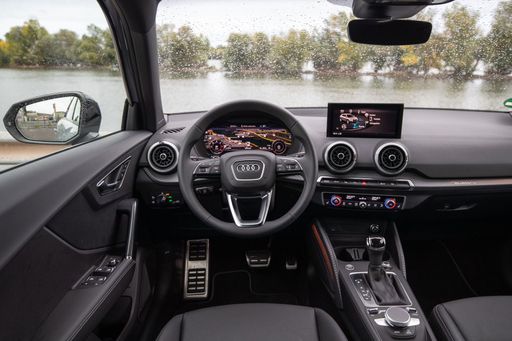
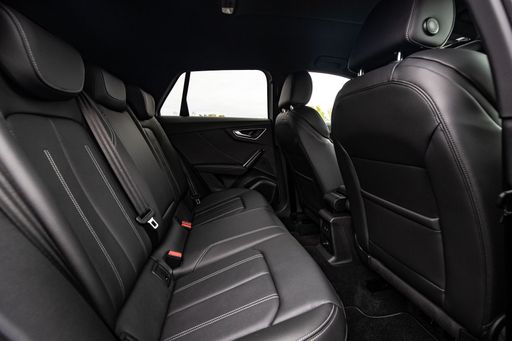
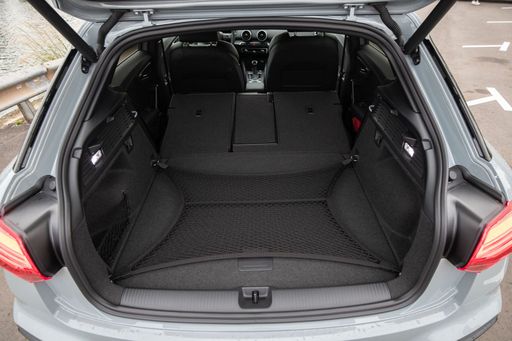
Toyota Yaris
The Toyota Yaris is a sprightly city hatch that packs clever packaging, surprising comfort and fuel-sipping manners into a neat, easy-to-park package. It rewards sensible buyers with low running costs, friendly ergonomics and a forgiving drive, delivered with Japanese reliability and just enough personality to make errands feel a little less ordinary.
details

Costs and Consumption |
|
|---|---|
|
Price
24900 - 43600 £
|
Price
21900 - 46700 £
|
|
Consumption L/100km
4.8 - 8.1 L
|
Consumption L/100km
3.8 - 9.5 L
|
|
Consumption kWh/100km
-
|
Consumption kWh/100km
-
|
|
Electric Range
-
|
Electric Range
-
|
|
Battery Capacity
-
|
Battery Capacity
-
|
|
co2
127 - 183 g/km
|
co2
87 - 215 g/km
|
|
Fuel tank capacity
-
|
Fuel tank capacity
36 - 50 L
|
Dimensions and Body |
|
|---|---|
|
Body Type
SUV
|
Body Type
Hatchback
|
|
Seats
5
|
Seats
4 - 5
|
|
Doors
-
|
Doors
3 - 5
|
|
Curb weight
1330 - 1610 kg
|
Curb weight
1090 - 1356 kg
|
|
Trunk capacity
355 - 405 L
|
Trunk capacity
141 - 286 L
|
|
Length
-
|
Length
3940 - 3995 mm
|
|
Width
1794 - 1802 mm
|
Width
1745 - 1805 mm
|
|
Height
-
|
Height
1455 - 1500 mm
|
|
Max trunk capacity
-
|
Max trunk capacity
935 L
|
|
Payload
450 - 510 kg
|
Payload
289 - 525 kg
|
Engine and Performance |
|
|---|---|
|
Engine Type
Petrol, Diesel
|
Engine Type
Full Hybrid, Petrol
|
|
Transmission
Manuel, Automatic
|
Transmission
Automatic, Manuel
|
|
Transmission Detail
Manual Gearbox, Dual-Clutch Automatic
|
Transmission Detail
CVT, Manual Gearbox, Automatic Gearbox
|
|
Drive Type
Front-Wheel Drive, All-Wheel Drive
|
Drive Type
Front-Wheel Drive, All-Wheel Drive
|
|
Power HP
116 - 300 HP
|
Power HP
116 - 280 HP
|
|
Acceleration 0-100km/h
4.9 - 10.5 s
|
Acceleration 0-100km/h
5.5 - 9.7 s
|
|
Max Speed
-
|
Max Speed
175 - 230 km/h
|
|
Torque
200 - 400 Nm
|
Torque
390 Nm
|
|
Number of Cylinders
3 - 4
|
Number of Cylinders
3
|
|
Power kW
85 - 221 kW
|
Power kW
85 - 206 kW
|
|
Engine capacity
999 - 1984 cm3
|
Engine capacity
1490 - 1618 cm3
|
General |
|
|---|---|
|
Model Year
2025
|
Model Year
2024 - 2025
|
|
CO2 Efficiency Class
D, F, E, G
|
CO2 Efficiency Class
B, G
|
|
Brand
Audi
|
Brand
Toyota
|
What drivetrain options does the Audi Q2 have?
The Audi Q2 is offered with Front-Wheel Drive or All-Wheel Drive.




